 |
Convert MOD to AIFF
|
MOD to AIFF Converter converts MOD files to
AIFF. The converter focuses on AIFF file that supports almost all codecs
in AIFF specification, for example, pcm 8-bit, pcm 16-bit, pcm 24-bit, pcm 32-bit,
pcm 32-bit float, pcm 64-bit float, a-Law, mu-Law, IEEE 754 float, ima4, gsm,
dwvw, and so on. The software also supports common file format such as WMA, OGG, AAC, AC3, M4B (MPEG-4 audiobook), MMF, M4R (iPhone ringtone), FLAC,
etc. It could convert M4A to AMR, FLAC to AIFF, 3GP to AC3, 3GP to AAC, MKV to AAC, EVO to AWB, and so on.
The software is very easy to use and supports batch conversion.
It is full compatible with 32-bit and 64-bit Windows 10/8/7/Vista/XP/2000.

What is MOD?
MOD and TOD are informal names of tapeless video formats used by JVC (MOD and
TOD), Panasonic (MOD only) and Canon (MOD only) in some models of digital camcorders.
Format names correspond to extensions of video files. Neither JVC nor Panasonic,
who pioneered the format, explained meaning of the file extensions, and the formats
were never given an official name. MOD is used exclusively for standard definition
video files, while TOD is used for high definition files.
Both MOD and TOD are file-based formats that are stored on a random-access
media. Directory structure and naming convention are identical except for extensions
of media files.
Standard definition video is stored in MPEG-2 program stream container files
with MOD extension; in most other systems these files have extension MPG or MPEG.
High definition video is stored in MPEG-2 transport stream container files with
TOD extension; in most other systems these files have M2T extension. Transport
stream files can be converted into more common program stream files without recompressing
the video itself.
Despite that the file structure is unique to this video recording format, the
location for still images follows the standard agreed upon by many still camera
manufacturers.
Standard definition video can be recorded in 4:3 and 16:9 formats, but the
latter is not correctly identified in media file header, so video may appear squeezed
horizontally when viewed. Software that is shipped with camcorders is capable
of processing aspect ratio correctly by using metadata stored in MOI files. There
are also third-party tools for setting the wide-screen flag in media file header.
MOD video can be viewed on a computer with a player that is capable of reproducing
MPEG-2 video. This video can be easily authored for watching on a DVD player without
recompression, because it is fully compliant with DVD-video standard.
TOD format is comparable with AVCHD, but cannot be directly played on consumer
video equipment. Media files must be packaged into distribution formats like HD
DVD or Blu-ray Disc, using authoring software. One of TOD recording modes, "1440CBR",
has the same frame size, aspect ratio and frame rate as 1080i HDV, and can be
loosely called "HDV on disk".
What is AIFF?
Audio Interchange File Format (AIFF) is an audio file format standard used for
storing sound data for personal computers and other electronic audio devices.
The format was co-developed by Apple Computer in 1988 based on Electronic Arts'
Interchange File Format (IFF, widely used on Amiga systems) and is most commonly
used on Apple Macintosh computer systems. AIFF is also used by Silicon Graphics
Incorporated. The audio data in a standard AIFF file is uncompressed big-endian
pulse-code modulation (PCM). There is also a compressed variant of AIFF known
as AIFF-C or AIFC, with various defined compression codecs.
Standard AIFF is a leading format (along with SDII and WAV) used by professional-level
audio and video applications, and unlike the better-known lossy MP3 format, it
is non-compressed (which aids rapid streaming of multiple audio files from disk
to the application), and lossless. Like any non-compressed, lossless format, it
uses much more disk space than MP3¡ªabout 10MB for one minute of stereo
audio at a sample rate of 44.1 kHz and a sample size of 16 bits. In addition to
audio data, AIFF can include loop point data and the musical note of a sample,
for use by hardware samplers and musical applications.
The file extension for the standard AIFF format is .aiff or .aif. For the compressed
variants it is supposed to be .aifc, but .aiff or .aif are accepted as well by
audio applications supporting the format.
- Free Download MOD to
AIFF Converter
- Install the software by instructions
- Launch MOD to AIFF Converter
- Choose MOD Files
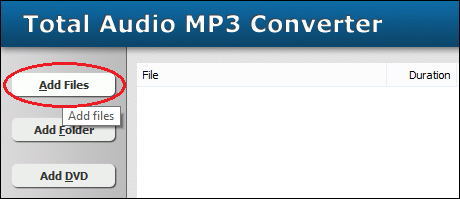
Click "Add Files" to choose MOD files and then add them to
conversion list.
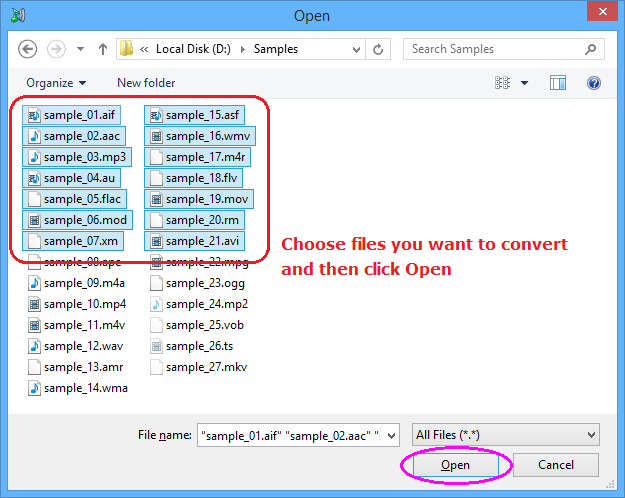
Choose one or more MOD files you want to convert and then click Open.
- Choose "to AIFF"
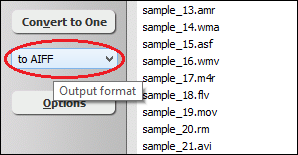
- Convert MOD to AIFF
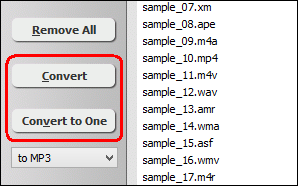
Click on "Convert" to convert MOD files to AIFF format; alternatively,
click on "Convert to One" to convert all files in list and
combine to a single one AIFF file.

The software is converting MOD files to AIFF format.
- Play and Browse AIFF File
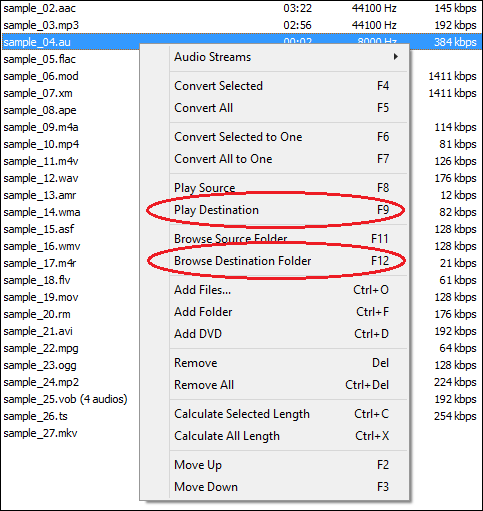
When conversion completes, you could right-click on converted file and choose
"Play Destination" to play the AIFF file; or choose "Browse
Destination Folder" to open Windows Explorer to browse the outputted AIFF
file.
Top
MOD to AIFF Converter is 100% clean and safe to install.
It's certified by major download sites.

MOD to AIFF Related Topics:
|

